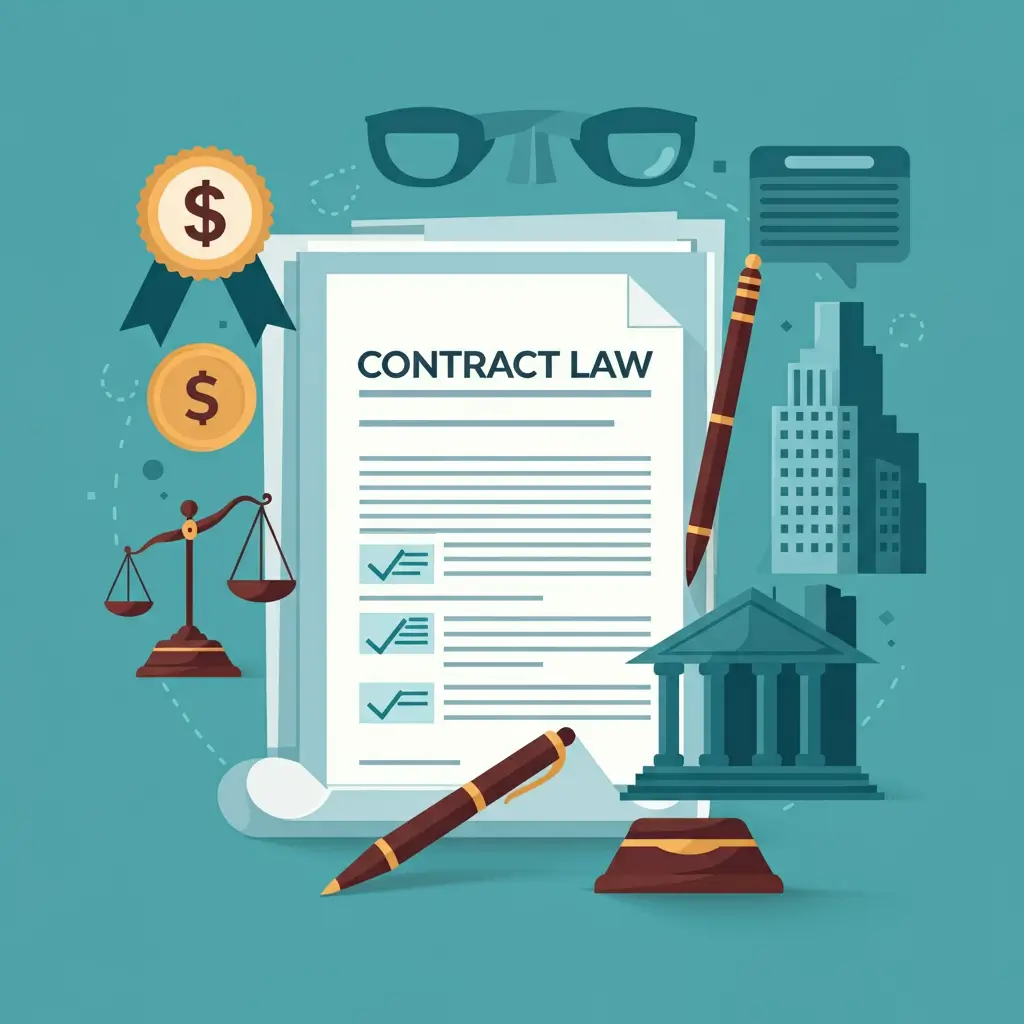
The relationship between contract law and property law is fundamental for professionals working in areas like real estate, intellectual property, and other related fields. Whether you’re a legal practitioner, entrepreneur, investor, or business owner, having a clear understanding of how these two areas of law intersect is crucial for drafting, negotiating, and executing property-related contracts effectively. Their interplay forms the backbone of many transactions involving property ownership, transfer, and use.
What Is Property Law?
Property law governs the ownership, transfer, and use of property. It applies to both real estate, such as land and buildings, and personal property, including tangible items like goods and intangible assets such as intellectual property rights. By setting the legal framework, property law ensures clarity and fairness in how property is bought, sold, leased, or otherwise managed. It also establishes guidelines for property usage, zoning, and restrictions, making it an essential component of transactions in both personal and commercial contexts.
What Is Contract Law?
Contract law focuses on the creation, interpretation, and enforcement of agreements between parties. It ensures that agreements are legally binding, reliable, and enforceable, providing security for individuals and businesses entering into transactions. From basic purchase agreements to complex real estate transactions, contract law ensures that all parties clearly understand their rights and obligations. Without these legal safeguards, transactions involving property or any other assets would lack structure and predictability.
How Contract Law and Property Law Work Together
Contracts are a cornerstone of property transactions, providing the legal framework for purchases, leases, restrictions, and other property-related agreements. These two fields of law intertwine to ensure fairness, clarity, and enforceability in property dealings. Below are some key examples of their interaction:
1. Property Sale and Purchase Agreements
The sale of property is one of the most common intersections of contract and property law. Under the Statute of Frauds, most real estate purchase agreements must be in writing to be enforceable. These agreements cover terms like the purchase price, contingencies, and timelines, ensuring both parties understand their obligations. In cases of breach, courts may impose remedies like monetary damages or “specific performance,” which requires the parties to meet the terms of the contract, such as completing the sale.
2. Property Use and Deed Restrictions
Contracts often dictate how property can be used. Restrictive covenants and easements, for instance, are legal agreements recorded in property deeds to establish limitations on use or grant access rights. Examples include landscaping requirements, prohibitions on commercial use in residential areas, or shared driveways. What makes these restrictions unique is their durability — they often remain in effect even after the property changes hands, binding future owners and merging aspects of contract law with property law.
3. Leases and Landlord-Tenant Agreements
Leases are contracts that give tenants the right to use and occupy property for a set period. Residential leases typically include terms such as rent amounts, security deposits, maintenance responsibilities, and occupancy rules. Commercial leases, however, are often more complex, addressing aspects like exclusive use clauses, tenant improvements, and subleasing arrangements. Both residential and commercial leases are governed by a combination of contract law and property law to protect the rights and obligations of both landlords and tenants.
Key Considerations to Avoid Contract and Property Disputes
Property transactions and agreements can be intricate, and disputes often arise from misunderstandings, unclear terms, or overlooked details. To minimize risks, here are some key considerations:
Legal Counsel and Contract Review
Hiring a real estate attorney is essential for drafting and reviewing property-related contracts. Attorneys ensure that documents are legally binding, clear, and balanced, protecting the interests of all parties. They can also help identify and address potential issues before they become costly disputes.
Due Diligence in Property Transactions
Conducting thorough due diligence is a vital step in any property transaction. Buyers should review deeds, homeowners association agreements, zoning laws, and other restrictions to ensure there are no surprises. Inspections, appraisals, and title searches are equally important to verify the property’s condition and legal standing.
Regulatory Compliance and Zoning Laws
Zoning laws and regulations can significantly impact property use, influencing everything from home businesses to new construction. Understanding these laws is critical for ensuring compliance and avoiding legal challenges. For example, prospective property buyers should verify whether their intended use of the property aligns with local zoning ordinances.
Stay Ahead in Contract and Property Law
The connection between contract law and property law is both complex and constantly evolving. New technological advancements, economic changes, and legal reforms continuously reshape these areas of law, making it essential for professionals to stay informed. A solid understanding of these legal principles not only helps you avoid costly disputes but also allows you to seize new opportunities confidently.
Advance Your Career With Pitt Law’s Online MSL Program
Take your legal knowledge to the next level with the University of Pittsburgh School of Law’s Online Master of Studies in Law (MSL) program. This program is tailored for professionals who want to deepen their understanding of the law without becoming practicing attorneys.
The Online MSL program offers comprehensive courses in contract law, property law, and other critical legal areas, all taught by world-class Pitt Law faculty. The program’s fully online and asynchronous format allows you to balance your education with your professional and personal commitments, giving you the flexibility to learn on your own schedule.
Specialize in Key Legal Areas
Customize your learning experience to match your career goals by specializing in fields such as:
- Health Care Compliance
- Human Resources Law
- Corporate Compliance
- International Business Law
These specializations enable you to build expertise in specific industries while gaining a broader understanding of legal concepts.
Take the Next Step
If you’re ready to enhance your career and stand out as a leader in your field, explore the University of Pittsburgh’s Online MSL program. Build your legal expertise, gain valuable industry insights, and equip yourself with the skills to navigate the complexities of contract and property law with confidence.
Learn more today and take the first step toward advancing your career!


